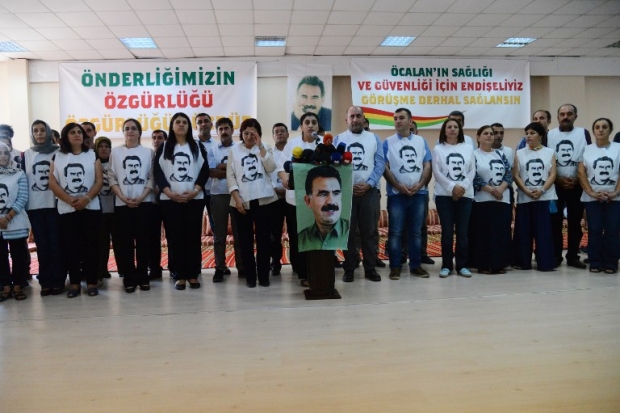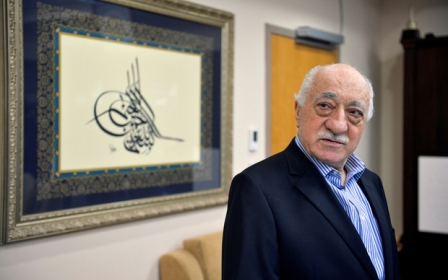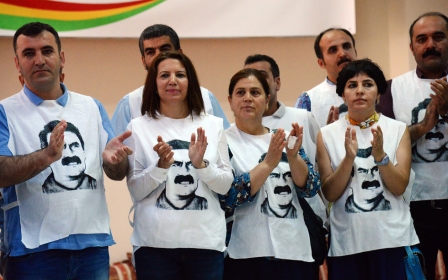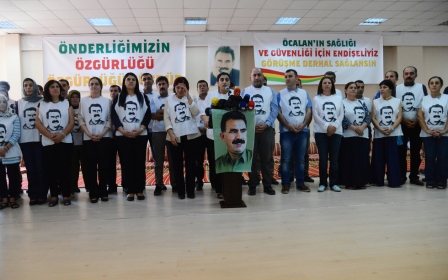Ocalan's soft words will do little to move Ankara
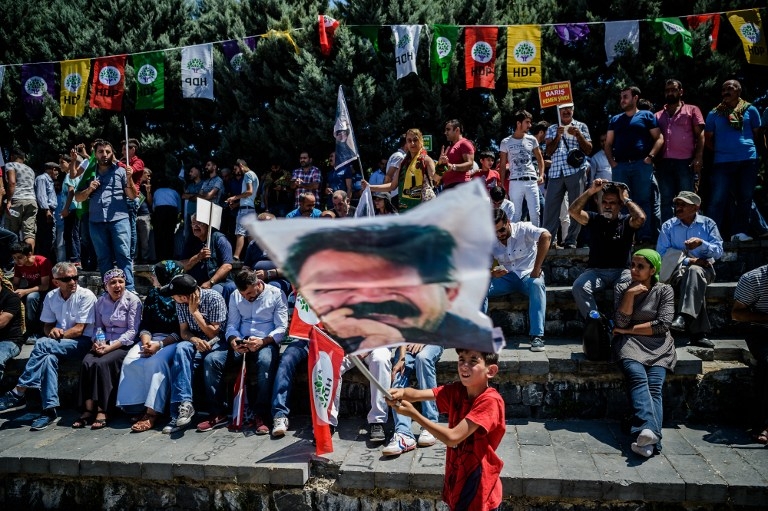
After months of total silence, the Turkish public has finally been given some firm news about Abdullah Ocalan, the founder of the Kurdistan Workers Party (PKK) who is serving a life sentence for treason and terrorism in an island prison on the Sea of Marmara.
What is more, Ocalan’s visitor, his brother Mahmut, who saw him on the eve of the Eid al Adha holiday, released a verbal message afterwards from the man that Kurdish militants revere as a leader.
Unsurprisıngly, Ocalan called for an end to the grim and apparently endless conflict between Turkish government forces and PKK fighters which claimed the lives 25 soldiers and policemen in terrorist attacks in the first two weeks of September alone and probably those of many more PKK supporters.
He declared that this was a war which neither side could win, but that if the government re-opened peace talks, there could be a settlement in six months.
“We have some projects, we have not abandoned the settlement process [of the Kurdish problem]. We will resolve this issue in six months. The war is meaningless. Let tears and bloodshed stop," Ocalan declared. This was his first publicly quoted remark since October 2014.
Message muted
It’s not clear whether or not the Turkish authorities were aware in advance last week that Mahmut Ocalan would follow up the visit to his brother by relaying this message from jail, although it is reasonable to assume that prison conversations probably are never wholly private. The news appeared initially on Sputnik, a Russian news site and only received gradual coverage in the Turkish media.
Nevertheless, as Ocalan was doubtless aware, his message is not one that will cause Turkey’s government serious annoyance, even if it has no intention of heeding its recommendations.
There are several reasons for this, one being that Ocalan’s supporters who have heard nothing from him directly for just under two years were getting restive and organising protests and a hunger strike demanding news. That tension has now been eased: the hunger strike, staged by 50 supporters in Diyarbakir, was immediately called off.
The collapse of the 19-month-old peace process last July and the subsequent tough strikes against PKK supporters by the Turkish armed forces, both from the air and through long lasting curfew operations in the main towns of the southeast, has not led him to change his beliefs - but his words indicate that he is fully aware of the enormous suffering of many civilians in the area.
Though there is no chance that the Turkish authorities will actually respond by opening talks, the imprisoned Kurdish leader’s words directly undercut recent moves by hardline PKK militants such as Cemil Bayik to denounce Turkey’s military intervention in Syria and even call for an all-out urban terrorism assault on Turkish cities outside the Kurdish heartlands.
Ankara and Istanbul earlier this year endured serious terrorist attacks by PKK-linked groups, leaving around 62 dead in Ankara, which gave a foretaste of what this might mean.
Bayik has also attempted to shift the PKK’s political leadership away from Ocalan to the group’s militants in the fields. A message, even an anodyne one, from the jailed leader who still enjoys unrivalled support among the movement’s civilian followers, should help arrest that process.
Zero sum?
However, there currently seems to be no chance that Turkey's government is going to go down this road. Even though the international community has probably favoured the resumption of the Kurdish peace process since it ended in July last year, and so may well be uneasy at Ankara’s "all or nothing" policies towards the PKK, the Turkish government seems prepared to do whatever is necessary to defeat it.
No economic analysis of the cost of the conflict to the country seems to be available; rather there is unanimity that whatever the price is, Turkey will pay it
No economic analysis of the cost of the conflict to the country seems to be available; rather there is unanimity that whatever the price is, Turkey will pay it.
President Recep Tayyip Erdogan indicated in speeches before and during the Eid holiday that he envisages only the total defeat and elimination of the PKK. In this, he is backed by public opinion in most of the country where news of the succession of deaths of young soldiers and policemen at the hands of the PKK has created a vengeful mood.
This tough stance presupposes that nationalist demands for cultural and some political autonomy will eventually wane among Turkey’s 18 million Kurds and be submerged by Islamic solidarity and conservatism. Mevlut Cavusoglu, Turkey’s foreign minister, expressed this line of thinking last weekend, saying “the PKK’s real targets are Muslim and conservative Kurdish brothers and the PKK has nothing to do with the rights and culture of Kurds”.
To show that it is serious about Kurdish cultural and linguistic rights, Ankara ordered the reinstatement of Kurdish language signs in a suburb of Diyarbakir, one of 28 communities where the municipality was ousted by government order and replaced by appointees from the ministry of the interior. Suleyman Soylu, the minister of the interior, ordered the return of Kurdish language signs as soon as he heard of their removal.
But the sacking of elected mayors by the government has provoked another twist in the growing row between Turkey and the US. When the US embassy in Ankara issued a statement of concern at the move, Turkey’s foreign minister and minister of the interior have responded with remarks telling the ambassador (not actually mentioned by name in the embassy statement) that this was unacceptable. Erdogan also defended the removals strongly.
Against this background, Ocalan’s remarks will have no impact on policy. But in the southeast, they may have slightly defused popular tensions over his personal fate. They also mean that one possible avenue to talks some day has not been closed.
- David Barchard has worked in Turkey as a journalist, consultant, and university teacher. He writes regularly on Turkish society, politics, and history, and is currently finishing a book on the Ottoman Empire in the 19th century.
The views expressed in this article belong to the author and do not necessarily reflect the editorial policy of Middle East Eye.
Photo: A boy waves a flag of Kurdish Workers Party's (PKK) jailed leader Abdullah Ocalan during a rally gathering Pro-Kurdish supporters, demonstrating against military coup and the state of emergency, one week after a failed coup, at the Gazi district in Istanbul on 23 July 2016 (AFP)
New MEE newsletter: Jerusalem Dispatch
Sign up to get the latest insights and analysis on Israel-Palestine, alongside Turkey Unpacked and other MEE newsletters
Middle East Eye delivers independent and unrivalled coverage and analysis of the Middle East, North Africa and beyond. To learn more about republishing this content and the associated fees, please fill out this form. More about MEE can be found here.



